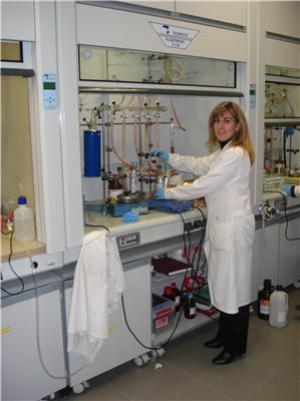A research team from Spain designs ecological (environmentally friendly) catalysts for obtaining important materials such as adhesives, textiles and medicines from hydrocarbons - an organic material obtained in the production process of oil

A research team from a university in Spain (University of Huelva) is designing ecological (environmentally friendly) catalysts for obtaining important materials such as adhesives, textiles and medicines from hydrocarbons - an organic material obtained in the oil production process.
The proposed process for obtaining these materials has many advantages. On the one hand, you can get products from a selection of cheap starting materials, such as hydrocarbons. In addition, no polluting by-products are created in the process and recyclable catalysts based on "clean" compounds are used.
"Aliphatic and aromatic hydrocarbons are the most common substances in the petrochemical industry. Thanks to their availability and low cost, they are excellent candidates to be used as basic starting materials in reactions that turn them into more complex and extremely important materials," explains lead researcher María del Mar Díaz Requejo.
Scientists are trying to develop catalysts that help these reactions through processes that are carried out at room temperature and that do not produce unwanted by-products, but substances of interest in the field of fine chemicals. "We use the history of copper, silver and gold to accelerate these reactions," explains the researcher.
After carrying out these reactions, compounds with valuable added value are obtained. For example, from benzene, researchers produce substances with anti-inflammatory properties such as ibuprofen (Nurofen, Advil, Adex) and naproxen. In addition, it is possible to obtain from cyclopropane substances with insecticidal activity as well as polymers with adhesive properties or a basic compound for nylon.
The process as a whole is environmentally friendly because no by-products are created during it and also because the catalysts can be recycled. "We prepared a heterogeneous catalyst, which means that each catalyst unit is able to act on several active sites to obtain the expected product." It is also possible to use atypical solvents such as supercritical fluids which are clean solvents (a supercritical fluid is a gas, which at different temperatures and pressures turns into a liquid).
The research team already has a decade of experience in the development of metallic catalysts from the eleventh group in the periodic table (gold, silver and copper). In fact, there are already two patents from this venture related to silver and gold catalysts.
